The Kremlin is facing a backlash from Russian military bloggers outraged at reports of specialist troops being sent to storm Ukrainian positions in order to maintain pressure on the front lines.
Facing a shortage of manpower and a pressing need to maintain the grinding advances in eastern Ukraine, Russia has reportedly been throwing some of its most skilled troops into mass infantry attacks, and at very high costs.
"The past four months have proved the costliest for Russian forces since the war began in 2022," a U.K. Military Intelligence report on Sept. 23.
The report said Russian casualties, both killed and wounded, were averaging over 1,000 a day, and were 1,262 in May, 1,163 in June, 1,140 in July, and 1,187 in August, adding the total number since the start of the full-scale invasion was "likely over 610,000."
"It is expected that Russia's casualty rate will average more than 1,000 per day throughout September, as their soldiers are needlessly (killed) or wounded," it added.
As the losses mount, some pro-Kremlin Russian military bloggers (milbloggers) are accusing authorities of ignoring an apparently widespread practice of using specialist troops as cannon fodder in mass infantry attacks.
"Specialists, the handicapped, wounded, and so on are sent to storm one way, and in some cases they will not even make it to the assault — a needless death," prominent milblogger Anastasia Kashevarova said in a post on Telegram on Sept. 24.
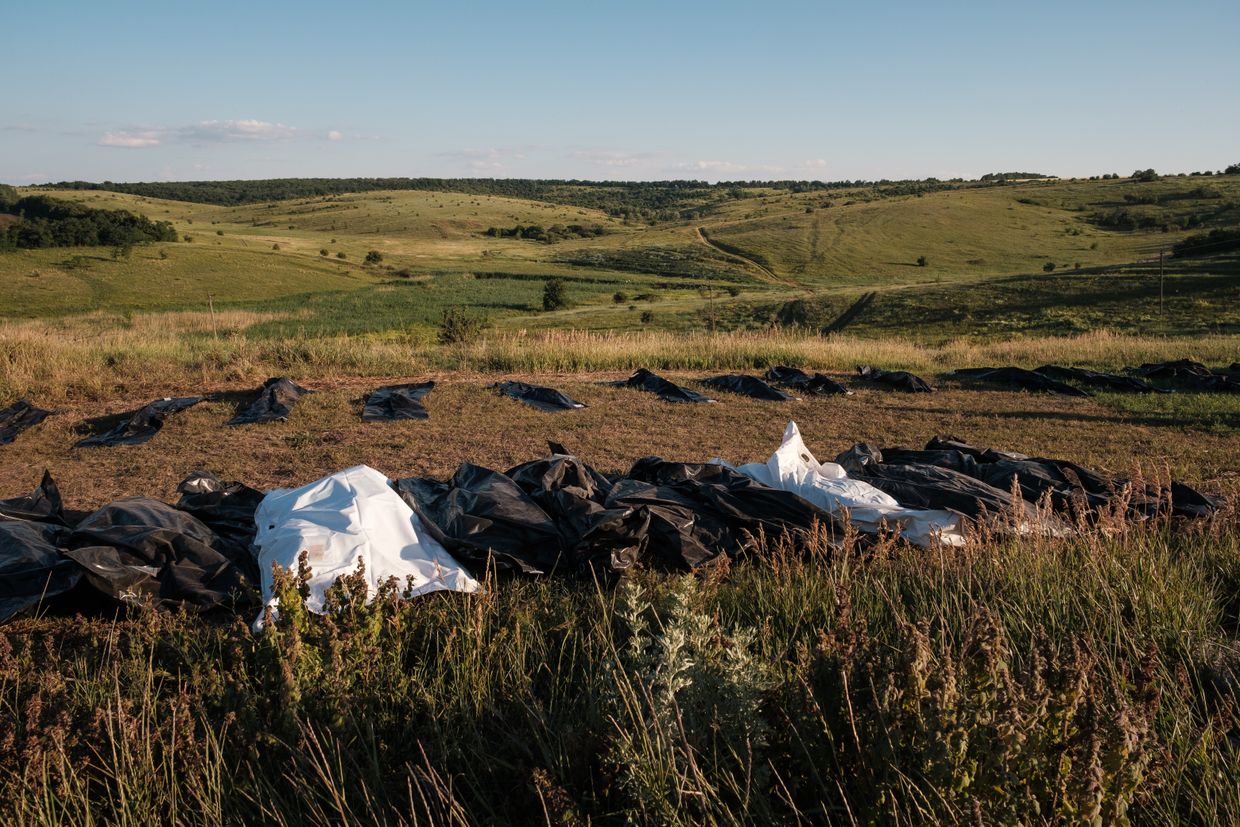
Despite hopes that Ukraine's incursion into Kursk Oblast would divert and slow Russian forces, Moscow's troops continue to make grinding advances in eastern Ukraine, leveraging in particular its advantage in manpower.
"Their tactics never change: they attack with quantity, and we fight them off with quality," one soldier defending the embattled town of Pokrovsk told the Kyiv Independent earlier this month.
"If we had that many people, that much ammunition, we would have fought all of them off a long time ago, but instead, we have shortages."
Steven Wolff, Professor of International Security at the University of Birmingham, told the Kyiv Independent that Russia's huge losses are indicative of a Russian military mindset that has not changed in decades.
"Russian military doctrine is Soviet-style, and it always relied on the depth of Russia and its enormous resources, including manpower resources," he said.
"The way in which Stalin just threw millions of people at the Nazis in the 1940s, it's not very different to what (Russian President Vladimir) Putin does in this terrible war of aggression against Ukraine."
In order to sustain this pool of manpower, Putin earlier this month signed a decree increasing the total number of Russian military personnel and staff by 180,000, to just under 2.4 million.
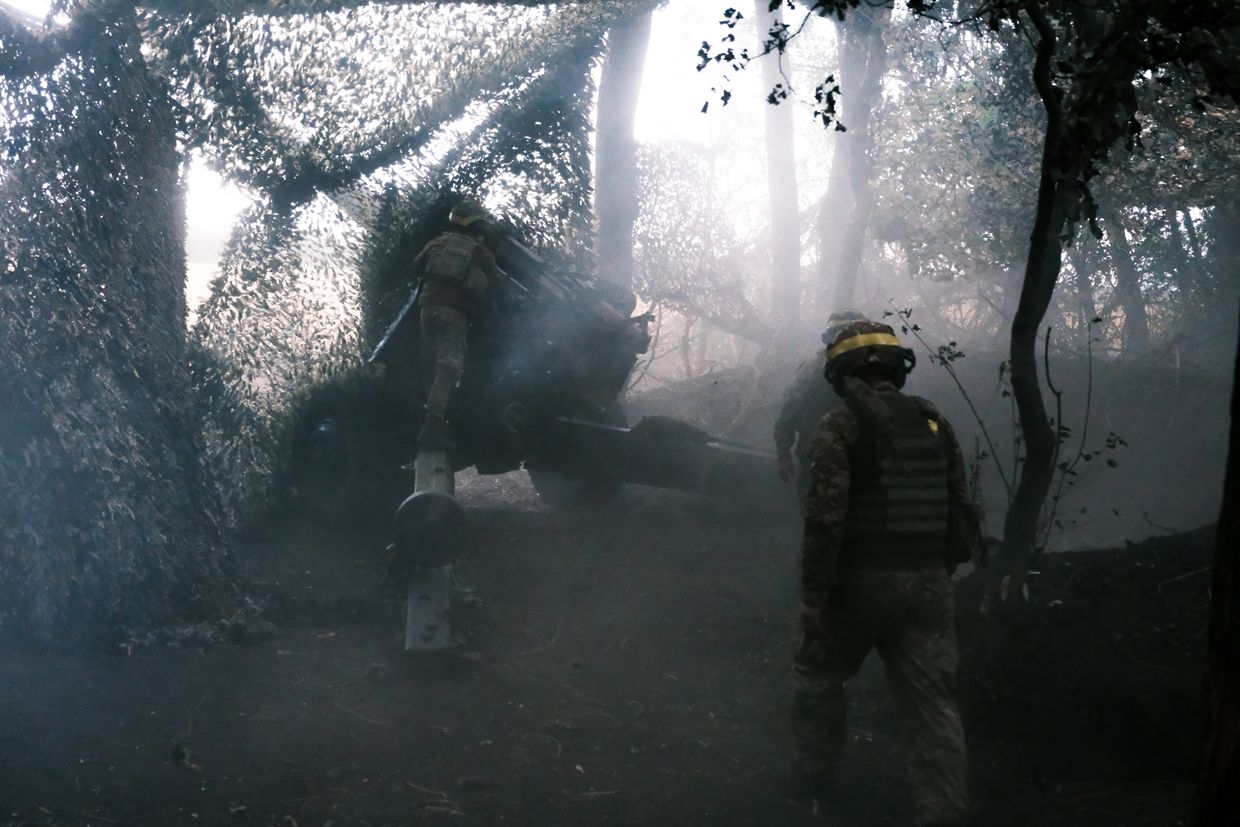
The Russian milblogger community has recently been highlighting numerous cases where skilled and specialized troops have been sent to the front in order to maintain the levels of men required to keep up pressure at the front.
Russian milblogger Roman Alekhine has described incidents in which Russian special forces officers, Aerospace Forces, and even sailors were being used to storm Ukrainian positions.
"Oh, yes, and rocket scientists too," he claimed in a post on his Telegram channel.
"And if… they died in vain then it depends on us — bloggers, military correspondents, journalists… to convey to the Defense Ministry and the Supreme Council the information about systemic problems at the front."
Ukraine's military has also noted a recent increase in specialist Russian troops taking part in infantry assaults.
Speaking to Espresso TV on Sept. 5, a commander with the 60th Brigade's 97th Battalion said waves of repelled assaults using "young and inexperienced soldiers" in the Lyman sector had led to large losses for Russian forces.
"New reinforcements have not yet arrived, so the enemy is forced to use trained and well-equipped special forces units for assaults," he added.
The Institute for the Study of War (ISW) also reported on the trend on Sept. 24, saying the "systematic misuse of Russian specialists… indicates that Russia is struggling to meet the manpower demands of its war in Ukraine."
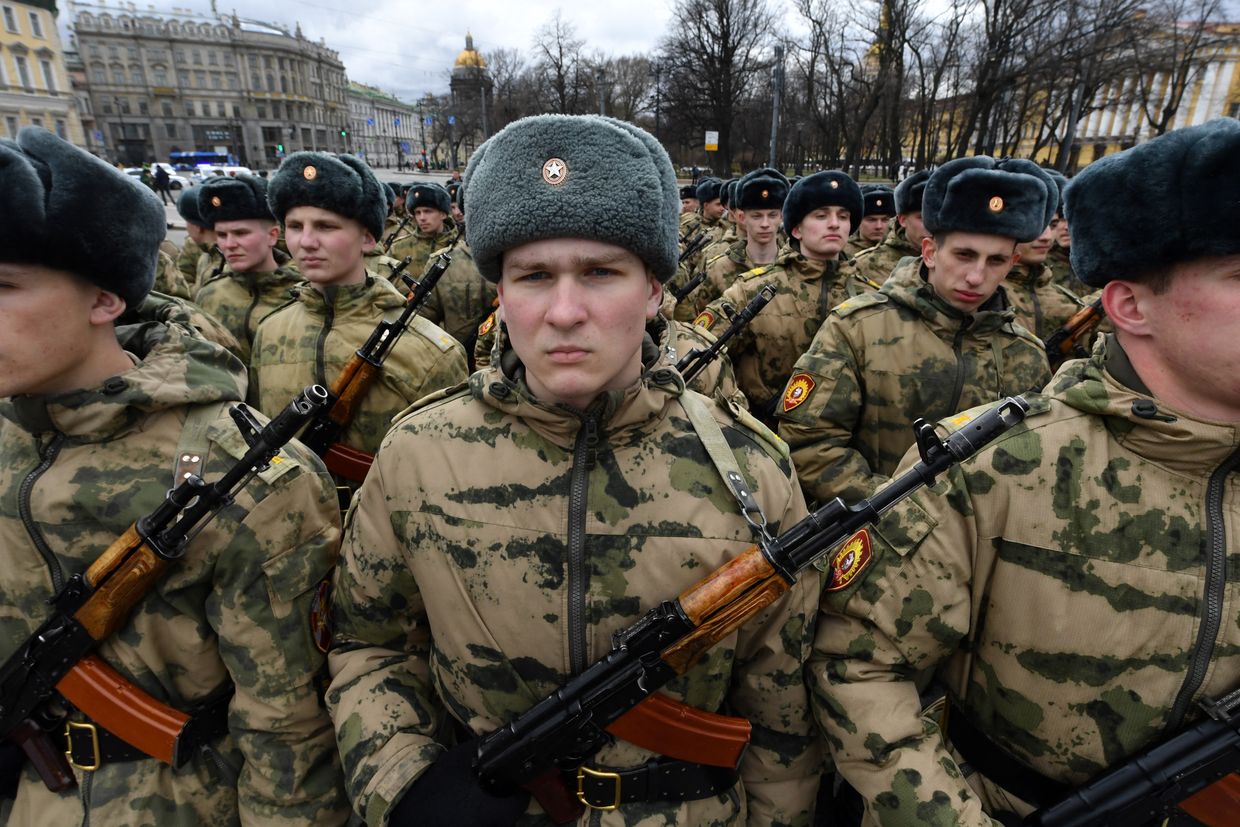
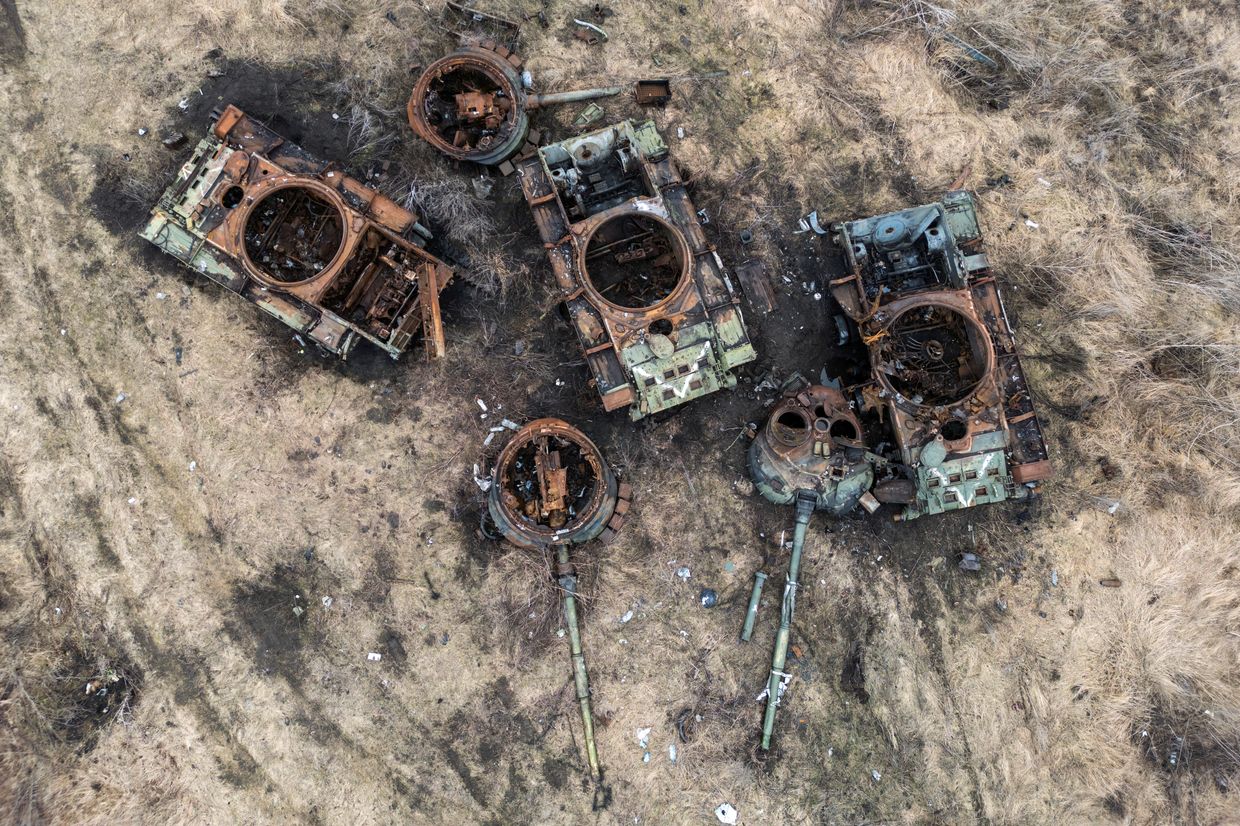
Compounding the high levels of losses, a recent scandal exposed the apparently common practice of transferring skilled and specialized troops to assault units and, in many cases, their deaths as punishment.
Earlier this month, two Russian reconnaissance drone specialists Dmitriy Lysakovskiy and Sergey Gritsay — call signs "Goodwin" and "Ernest" —recorded a video in which they said their unit was being punished for reporting accurate information about the situation on the front lines.
"The entire long-range UAV drone unit was destroyed so that we'd stop receiving actual front line information, and sent into the assault," one of the men says in the video, adding: "Our regiment commander 'Zloy' already reported the capture of Lesovka, and obviously it's a lie. It's not taken."
"This situation is not unique, it happens all across the front line. Lies are an absolute norm. It's normal to lie about capturing places," he adds.
"And I record this because there is a high chance I won't return from this assault."
Both men were reportedly killed by a drone while storming Ukrainian positions.
A very curious incident occurred for Russians in the Pokrovsk direction. We've all heard when Russians send specialists like UAV operators and tankmen into meat assaults. In this case, one operator recorded a video before his death...
— WarTranslated (Dmitri) (@wartranslated) September 13, 2024
1/ pic.twitter.com/b893g7mF3w
The video gained traction among Russian milbloggers, prompting many to raise similar cases.
The milblogger North Channel said the practice "continues everywhere," while one of the most popular Russian milbloggers Rybar said it was endemic, and "scoundrel commanders remain in power while truth-telling soldiers and officers die."
"Note that all this is not happening in some backwater where the army could fall apart, but in the most important direction, in the Pokrovsk area (where) the success of the entire strategic campaign of the Russian Armed Forces depends right now," another milblogger, artjockey, said on Telegram.
"There is no more important place on the entire front right now," they added.
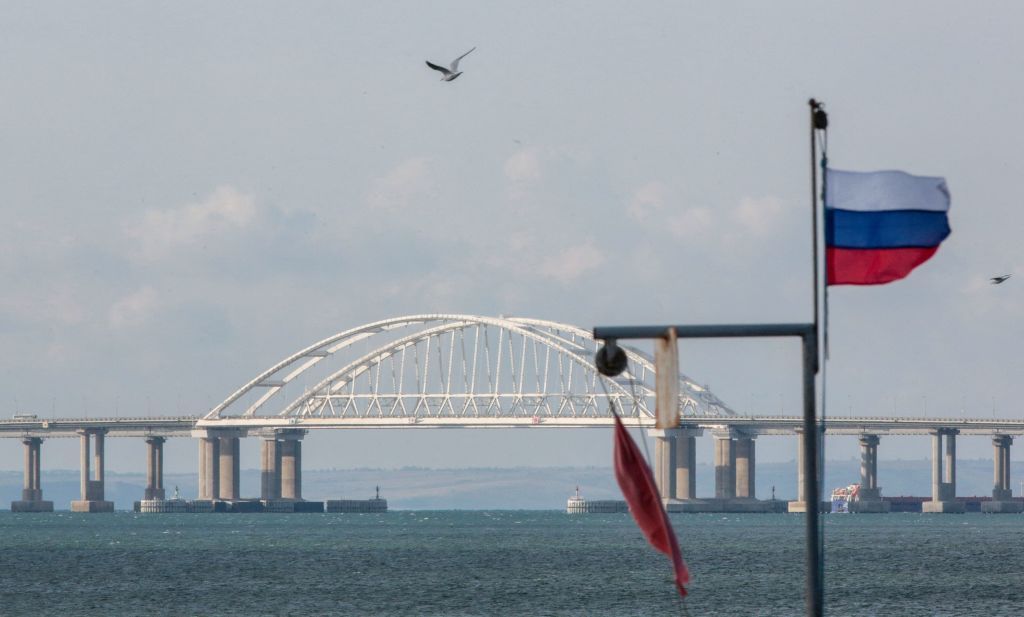
Such was the outcry that Russian Defense Minister Andrei Belousov initiated an investigation into the case of Goodwin and Ernest, the preliminary results of which were reported by a milblogger Alexander Kots earlier this week.
According to his report, the investigation found Goodwin and Ernest's commander did nothing wrong by disbanding their drone unit and sending them to the front as infantry.
Many milbloggers reacted to the report with fury, with one saying authorities were "not interested either in an objective investigation of this particular case, or in correcting the situation in the army."
But Wolff expects little to change, in large part because of a lack of outcry among the Russian public.
"There's also a particular mindset that makes that possible, where the Russian population just goes along with it because that's what they've always done," he said.
"You can go back all the way to the Napoleonic wars, there's just an enormous capacity for suffering, and that doesn't excuse it, but it just makes it so much more acceptable in a way."
A February poll from the Levada Center, an independent Russian polling organization, found that 77% of Russians supported the full-scale war in Ukraine, but a more recent survey suggests there may have been a shift in public mood in the months since.
According to polls conducted by independent pollsters ExtremeScan and Chronicles in September 2024, 49% of Russians support the immediate withdrawal of troops from Ukraine and peace talks with Kyiv.
Introducing official merch
from the Kyiv Independent













